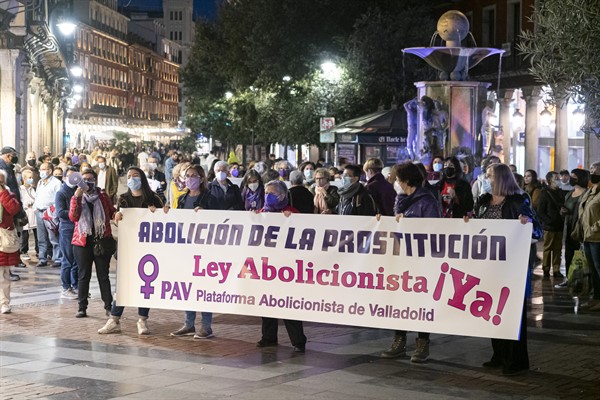MADRID—Spanish Prime Minister Pedro Sanchez is vowing to outlaw prostitution, arguing that it “enslaves” women. While Spain decriminalized the practice in 1995, Sanchez’s Socialist Party now wants to go the way of Sweden, where it is illegal to buy sex but not to sell it.
The Spanish government’s about-face illustrates how in the past few decades, Europe has become a laboratory for policies to address not only prostitution itself, but also the ways in which it goes hand-in-hand with human trafficking. Whereas countries like Norway and France have followed Sweden’s lead in trying to ban the practice on the demand side, Germany and the Netherlands have opted to legalize and regulate prostitution. While the laws themselves vary from country to country, they fall into one of two familiar policy prescriptions of how to address what Rudyard Kipling, writing in 1888, famously called “the most ancient profession in the world”: criminalize, or legalize and regulate.
Kipling’s quote is somewhat misleading, as prostitution can hardly be called a “profession.” It requires no specialized training or educational qualifications; indeed, clients often favor the youngest or newest prostitutes. Yet the idea that it is the world’s oldest profession has become widely engrained and is frequently cited by legalization advocates. By bringing the practice into the open, they argue, prostitutes can do their work safely and securely, with access to social benefits like health care. Proponents of this approach also argue that legalizing sex work confers dignity and legitimacy, helping to eliminate the stigma against those who practice it.

